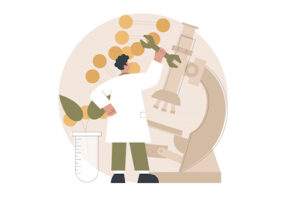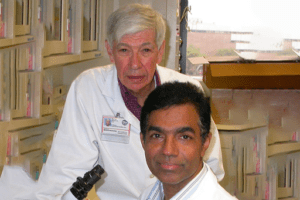
Biological therapy for non-obstructive azoospermia
Non-obstructive azoospermia (NOA) is a condition in which men produce no sperm at all, even though their genital ducts are not obstructed. This can be

Antioxidants alone are not considered a definitive solution for azoospermia. Azoospermia is a condition characterized by the absence of sperm in the ejaculate, and its causes can be multifactorial, including testicular dysfunction, blockages in the reproductive tract, hormonal imbalances, genetic factors, or other underlying medical conditions.
While antioxidants have been studied for their potential benefits in male infertility, including azoospermia, their role is typically seen as supportive rather than curative. Antioxidants help protect sperm cells from oxidative stress, which can damage sperm DNA and impair sperm function. By reducing oxidative stress, antioxidants may enhance sperm quality and improve fertility potential in some cases.
However, it’s important to note that the efficacy of antioxidant supplementation in treating azoospermia is not well-established, and the available evidence is limited and conflicting. Different studies have shown varied results, and the optimal dosage, duration, and specific antioxidants to use are still subjects of ongoing research.
For men diagnosed with azoospermia, it is crucial to undergo a comprehensive evaluation by a reproductive specialist or urologist to determine the underlying cause and explore potential treatment options. Depending on the specific diagnosis, treatment approaches may include hormonal therapy, surgical interventions to address obstructions, microsurgical sperm retrieval techniques, or assisted reproductive technologies such as in vitro fertilization (IVF) with intracytoplasmic sperm injection (ICSI).
Here are a few references that discuss the role of antioxidants in male infertility, including azoospermia:
These references provide an overview of the research and evidence available on the use of antioxidants in male infertility, including their impact on sperm DNA fragmentation and overall reproductive outcomes. Please note that while these studies discuss the broader role of antioxidants in male fertility, they may not specifically focus on azoospermia. For more specific studies related to azoospermia, it may be helpful to consult specialized journals or consult with a reproductive medicine specialist who can provide the most up-to-date information in this field.

Non-obstructive azoospermia (NOA) is a condition in which men produce no sperm at all, even though their genital ducts are not obstructed. This can be

He main point of the article “Inhibition of Spermatogonial Differentiation by Testosterone” is that testosterone can inhibit the differentiation of spermatogonia, which are the stem
Prolistem, a patented formula, has not been evaluated by the Food and Drug Administration. This product is not intended to diagnose, treat, cure, or prevent any disease.
Prolistem, a patented formula, has not been evaluated by the Food and Drug Administration. This product is not intended to diagnose, treat, cure, or prevent any disease.